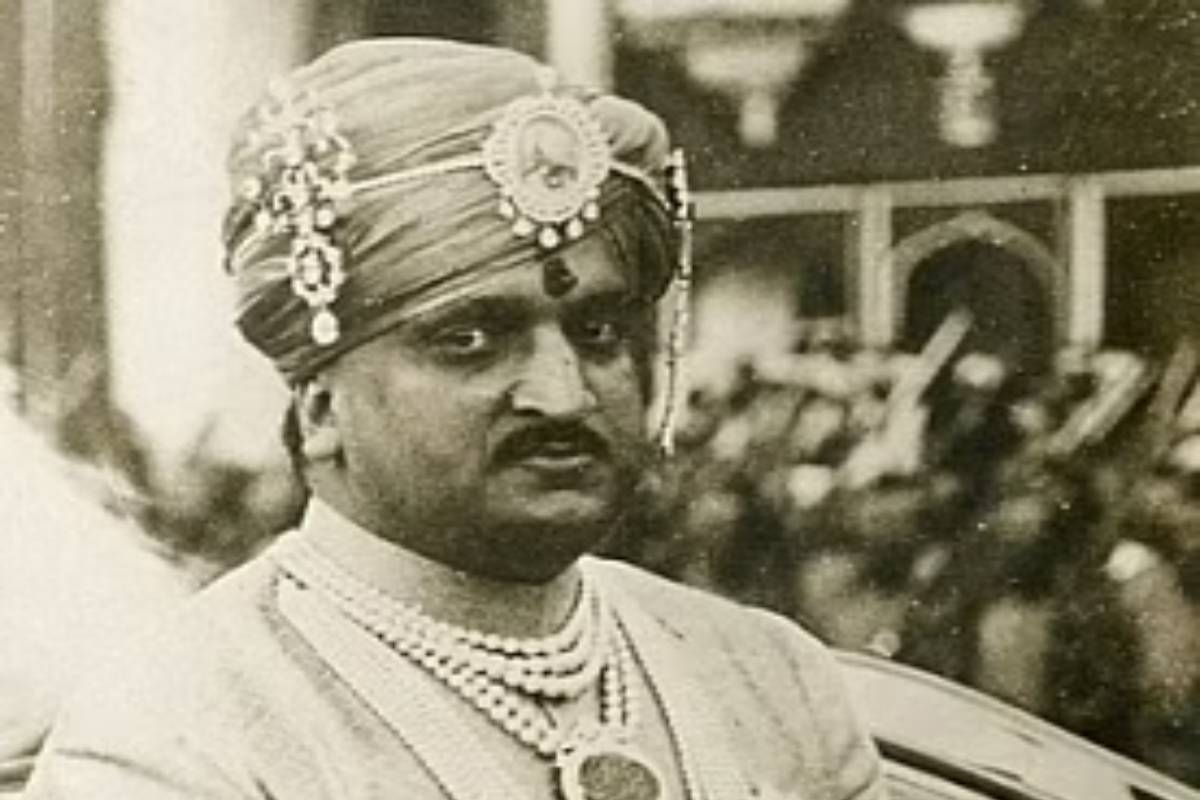LG calls effective for steps to wipe out terrorism from Jammu
Lt. Governor Manoj Sinha, on Thursday, stressed strengthening border security against asymmetric threats due to the porous border with riverine and difficult mountain ranges.
The youngsters, wearing traditional Dogra turban, chanted phrases like “Jai Duggar Jai Dogra” and “Maharaja Hari Singh Ji Amar Rahe” (Long live the Maharaja).

Maharaja Hari Singh of Jammu finally gets his due remembrance
For the first time, after 75 years of independence, Jammu and Kashmir’s last king Maharaja Hari Singh has finally received its unpaid acknowledgement. For the first time, J&K celebrated Maharaja Hari Singh’s birth anniversary with a holiday. The occasion was marked by a cake-cutting ceremony, followed by street festivities in several sections of the Jammu region.
The last Dogra king, Maharaja Hari Singh, was remembered on his 127th birthday. To commemorate this day, Yuva Rajput Sabha (YRS) held rallies, handed out treats, and scheduled cake-cutting rituals at several locations.
Advertisement
The youngsters, wearing traditional Dogra turban, chanted phrases like “Jai Duggar Jai Dogra” and “Maharaja Hari Singh Ji Amar Rahe” (Long live the Maharaja).
Advertisement
Maharaja Hari Singh, the fourth and final Dogra king of the former princely state, was known for his extensive reforms. He governed from 1925 to 1947 and was there for various historical events that occurred over time, demonstrating his ability to manage all circumstances carefully. He made sure that everyone had an equal chance to advance throughout his reign.
He made sure farmers received their compensation while also working to eradicate social ills and inequity from the state. He promoted agricultural reforms that freed farmers from the control of moneylenders. He quickly signed the Instrument of Accession with India on October 26 after sensing the events that were taking place soon after India’s independence because he wanted to allow the Indian army to enter Kashmir to battle and drive back Pakistani intruders and tribal raiders. Later, due to political events, he had to reside in Mumbai, where he passed away in 1961.
Regrettably, Jammu and Kashmir waited so long to acknowledge Maharaja’s contributions.
The first Maharaja Hari Singh-themed Park, located close to the Civil Secretariat Jammu wasn’t established until 2007. After that, beautiful statues of the Maharaja were placed inside the BJP headquarters at Dr Shyama Prasad Mookherjee Bhawan in Trikuta Nagar, Jammu, one near Bagh-e-Bahu, one on the banks of the Tawi, one in the Samba district near Veer Bhoomi Park, and one near the Tawi bridge
The last Maharaja of the princely state of Jammu and Kashmir, who received several honours, governed for 29 years before passing away at age 66, although he had greatly improved the lives of the general populace.
He was born on September 23, 1895, to Raja Amar Singh and Bhotiali Chib at the palace of Amar Mahal Jammu. Maharaja Raja Amar Singh, the brother of Maharaja Pratap Singh, the then Maharaja of Jammu and Kashmir, had only one surviving child, Hari Singh. Hari Singh succeeded to the throne of the Maharaja since the latter had no objections.
The Maharaja’s life had its ups and down too. His three wives were unable to have children and passed away. Hari Singh’s final marriage to Tara Devi Sahiba of Kangra gave hime a son, Karan Singh, who went on to become “Sadr-e-Riyasat” in 1952 and Governor in 1964.
Advertisement